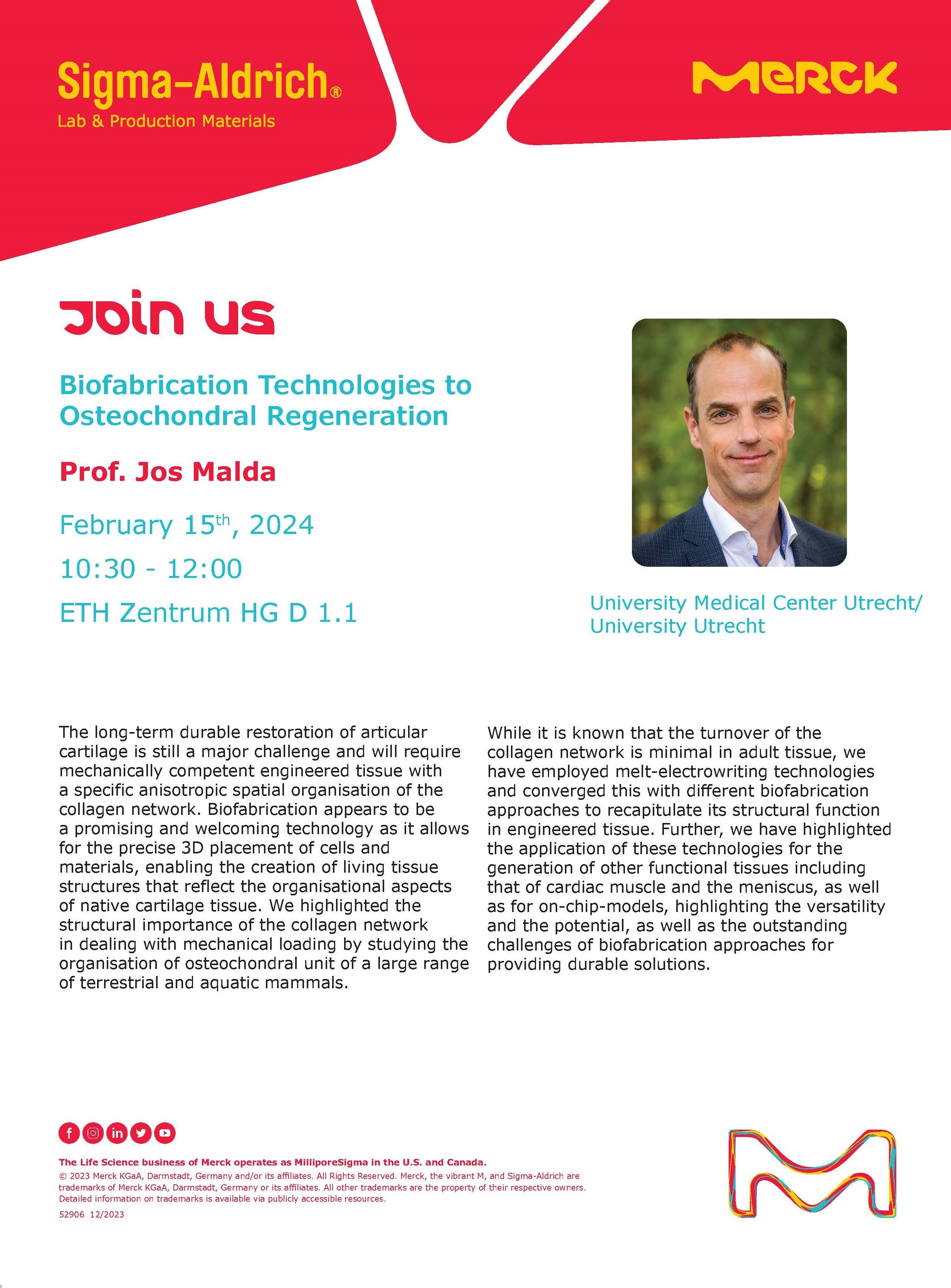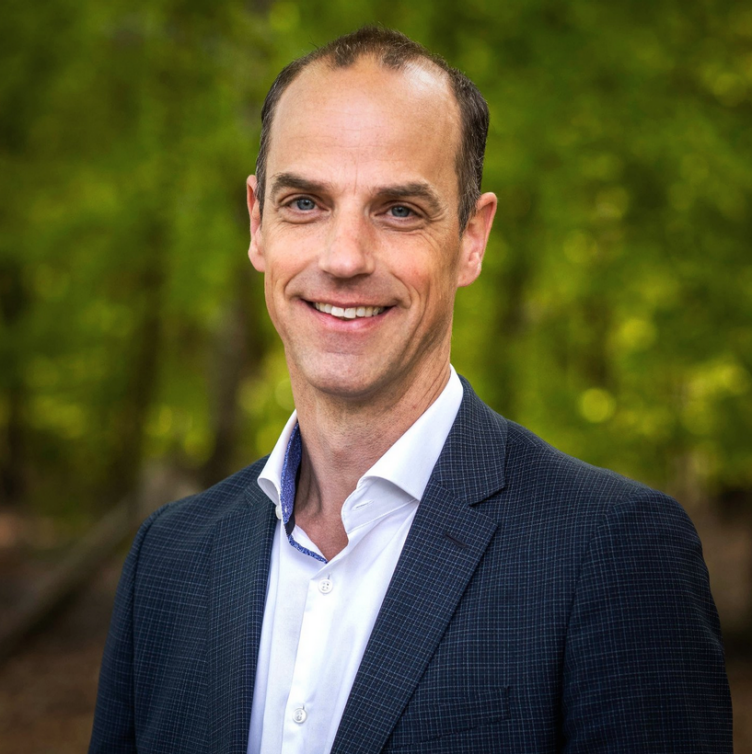MaP MERCK Lecture: Prof. Jos Malda
Professor Jos Malda from the University Medical Center Utrecht and University Utrecht held a lecture at ETH Zentrum last Wednesday, 15 February 2024. The event was sponsored by MERCK.
Biofabrication Technologies for Osteochondral Regeneration
Prof. Jos Malda, external page University Medical Center Utrecht and University Utrecht
15 February 2024, 10.30-12.00 | ETH Zentrum HG D 1.1
Programme
- 10.00 Welcome coffee (Foyer HG D Nord)
- 10.30 Lecture

Prof. Jos Malda, University Medical Center Utrecht and University Utrecht

Prof. Jos Malda is a pioneering scientist in the regenerative medicine field of biofabrication. His ground-breaking work on the convergence of biofabrication technologies, such as extrusion-based and volumetric printing with melt electrowriting, laid the foundation for the creation of functional living implants with extraordinary/bioinspired structural complexity and high resolutions. With this, he has transformed the field of osteochondral regenerative medicine, and durable fibre-reinforced composite implants are now progressing towards the human and veterinary clinics. Malda leads and mentors an international and interdisciplinary team at the Regenerative Medicine Center Utrecht. He is also a leading educator and initiated the world’s first international master's degree in biofabrication (2015), as well as the first annual summer course in 3D printing and biofabrication (2013), and continues to direct both. He has received multiple international awards from the biofabrication and regenerative medicine communities. He was elected President of the International Society for Biofabrication (ISBF) from 2014 to 2018. He currently serves as 2nd Vice President (2023-2025) of the International Cartilage Regeneration and Joint Preservation Society (ICRS).
Abstract
The long-term durable restoration of articular cartilage is still a major challenge and will require mechanically competent engineered tissue with a specific anisotropic spatial organisation of the collagen network. Biofabrication appears to be a promising and welcoming technology as it allows for the precise 3D placement of cells and materials, enabling the creation of living tissue structures that reflect the organisational aspects of native cartilage tissue. We highlighted the structural importance of the collagen network in dealing with mechanical loading by studying the organisation of osteochondral unit of a large range of terrestrial and aquatic mammals. While it is known that the turnover of the collagen network is minimal in adult tissue, we have employed melt-electrowriting technologies and converged this with different biofabrication approaches to recapitulate its structural function in engineered tissue. Further, we have highlighted the application of these technologies for the generation of other functional tissues including that of cardiac muscle and the meniscus, as well as for on-chip-models, highlighting the versatility and the potential, as well as the outstanding challenges of biofabrication approaches for providing durable solutions.